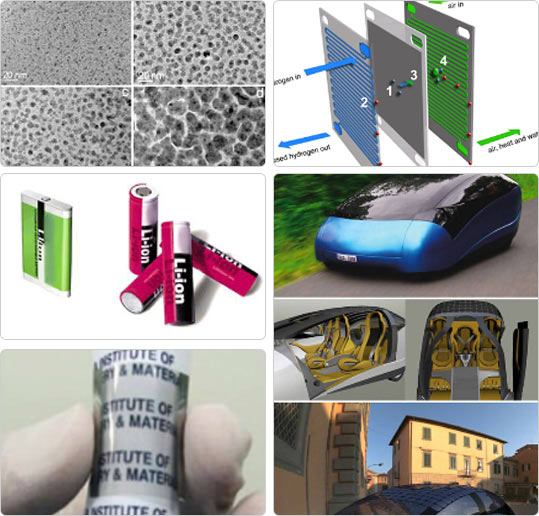Introduction
Functional Materials Engineering Laboratory
Professor
Kim, Seok
Members
Doctor Course: 1, Master Course: 5, Undergraduate: 4
Research Interests
Functional materials will be the key elements in the near future, which will be dominated by technologies such as information, electronics, communications, aerospace, energy, medical and environmental. These materials are highly value-added, having a great impact on human life.
Our research laboratory covers the area of organic-inorganic hybrid nanocomposites for an application to electrodes and electrolytes of secondary batteries, fuel cells, and supercapacitors in order to produce polymeric and carbonaceous material applied to a filed of energy storage device, which is essential for electronic, information, and ubiquitous industries.
Energy materials are fascinating new functional materials that lead the frontier nanoscience and nanotechnology in the 21st century. Our aim is to understand the fundamental physical and chemical properties of nano-structure materials from both theoretical and experimental approaches, and find out a new approach to synthesize electrode and electrolyte materials in a desirable manner, and furthermore search for renovation and modification methods. Based on these studies, we endeavour to apply various forms of materials to the power sources such as secondary batteries, solar cells, fuel cells, supercapacitors. Besides, these materials can be applied to environmental-friendly applications such as display devices, catalysts, adsorbents, filters, adhesives, and nanocomposites, etc.
Our research laboratory covers the area of organic-inorganic hybrid nanocomposites for an application to electrodes and electrolytes of secondary batteries, fuel cells, and supercapacitors in order to produce polymeric and carbonaceous material applied to a filed of energy storage device, which is essential for electronic, information, and ubiquitous industries.
Energy materials are fascinating new functional materials that lead the frontier nanoscience and nanotechnology in the 21st century. Our aim is to understand the fundamental physical and chemical properties of nano-structure materials from both theoretical and experimental approaches, and find out a new approach to synthesize electrode and electrolyte materials in a desirable manner, and furthermore search for renovation and modification methods. Based on these studies, we endeavour to apply various forms of materials to the power sources such as secondary batteries, solar cells, fuel cells, supercapacitors. Besides, these materials can be applied to environmental-friendly applications such as display devices, catalysts, adsorbents, filters, adhesives, and nanocomposites, etc.
Recent Research
·Developments of novel membrane, electrode and supporting materials for cells or capacitor applications
·Nanotechnology for a control of ordered structures and porous characteristics of materials
·Novel materials for high performance supercapacitors and secondary batteries with a high energy density and power density
·Environmental-friendly materials for separation and adsorptions using hybrid composites
·Fabrication and manipulation of polymer electrolytes and composite electrode having a good electrochemical performance
·Chemical and physical modification and functionalization of organic-inorganic materials
·Nanotechnology for a control of ordered structures and porous characteristics of materials
·Novel materials for high performance supercapacitors and secondary batteries with a high energy density and power density
·Environmental-friendly materials for separation and adsorptions using hybrid composites
·Fabrication and manipulation of polymer electrolytes and composite electrode having a good electrochemical performance
·Chemical and physical modification and functionalization of organic-inorganic materials
 Chemical & Biomolecular Engineering
Chemical & Biomolecular Engineering